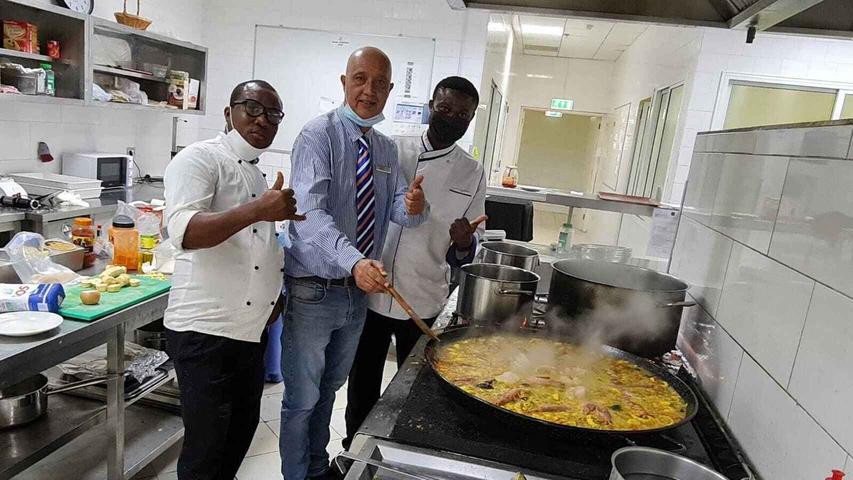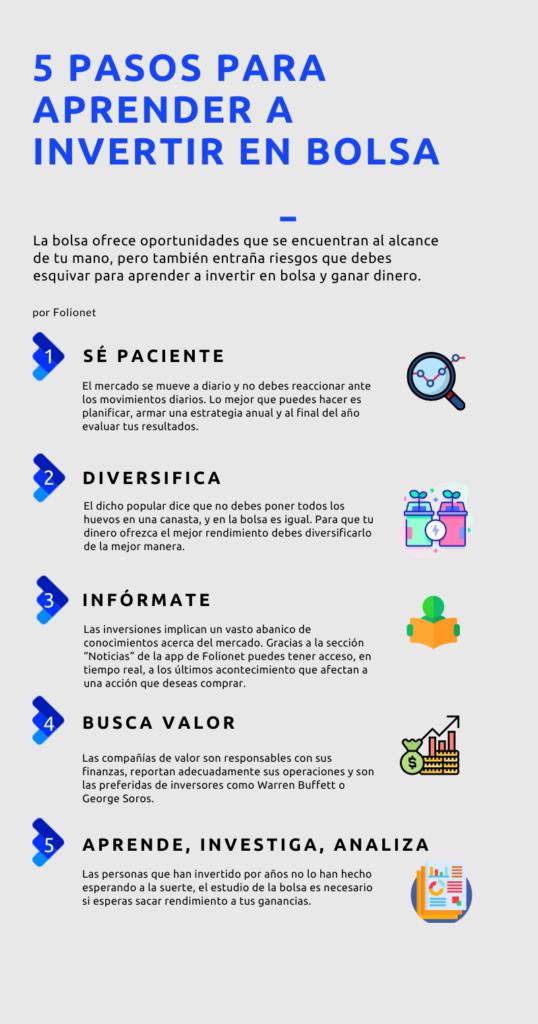The incredible story of César: from the 'hunger queues' in Palma to running a luxury hotel in Africa
Related news
There are few people left on the streets of Palma because the humid cold of January begins to get into the bones. César turns off his phone after sending several dozen resumes. He has been living in his car for several days, parked next to the Red Cross clinic in the Balearic capital. He starts the engine a bit to warm up the small cabin where he will spend the night again. A passerby watches him suspiciously from the sidewalk. Little does he know that César Blasco worked at the UN, traveled around the world, worked as a journalist in numerous media outlets and even owned a hotel in Costa Rica. The pandemic passed like a tsunami through his life and sent him to the streets. But, for once, the story has a happy ending. After a few days in the open, César receives a call, travels to Madrid for an interview and, shortly after, ends up as the manager of a luxury hotel in Equatorial Guinea.
"Those days enriched me as a person and took away many prejudices," he told EL ESPAÑOL from his office at the Hilton in Malabo. "These are experiences, bumps in life that make you realize that something like the pandemic can take you to a place where you always think others will be, not you." He now lives in the hotel he runs, earns about 4,000 euros a month and makes paella on Sundays. And yet, at the beginning of this year he was one more in the queues of hunger in Palma and he rationed the gasoline in his car to be able to turn on the heating a little each night.
Until that moment, César had always led an upper-middle class life. Born in Barcelona 53 years ago, he got a scholarship to study Communication and Journalism in Geneva and stayed there to work in the press department of the United Nations. He traveled around the world and accumulated more work experience in the media such as Cadena SER or Canal Sur and entities such as the Barcelona 92 Olympic Committee or the gender violence department of the Spanish Red Cross. At the age of 32, he left for Nicaragua and his life changed for the better.
César Blasco worked, before going bankrupt, in the media.Cedida
"I came and went to Costa Rica and there I fell in love, got married and had two wonderful children." After working in the media and press departments in the Central American country, he decided to take a 180-degree professional turn. “I reinvented myself in the tourism sector working and training in hotels and restaurants, until in 2019 the opportunity arose to own a hotel. Who would have thought what would happen next… ”, he reflects in conversation with EL ESPAÑOL.
Two pandemic blows
The Covid-19 pandemic arrived and the country closed down hard. The months passed, but the recovery did not come, because tourism has a notable weight in the Costa Rican economy –before the coronavirus it contributed 6.3% of GDP-. “I lost everything and returned to Spain because my savings were running out. After two weeks in Madrid, I got a job in Palma taking care of an elderly person. I had never done it before, but you had to work”, he recounts before heaving a sigh.

But then the pandemic struck again. The old man's relatives decided to take care of him and fired César. And then a black hole opened up. “It's a spiral: you lose your job, you lose your house and you end up living on the street, in a world where it's very difficult to leave. And no one is exempt from this, absolutely no one, because then the experience or the titles you have hanging on the wall does not matter”.
The car where César had to sleep after losing everything due to the pandemic.Cedida
One day, César parked his car near the Palma Red Cross and left him there. From then on, it was his house. There was no other place to go. He put a mattress in the back seats, carefully arranged the only suit he kept so it wouldn't get wrinkled, and turned on the phone to start sending resumes. “At first you think it's a pothole you'll get out of right away, but little by little you lose hope because after sending 400 or 500 resumes nothing had happened. In fact, most don't even answer you." Cesar was beginning to fear that the handicap of age would be too much of a burden to get even a simple interview.
That's pretty accurate https://t.co/9pG1GA9fWH
— How To Win At Life Tue Jul 20 18:43:15 +0000 2021
At lunchtime, life had to be sought and one day he had to go to the soup kitchens of the Balearic capital, the so-called hunger queues. He, who had given accommodation and food to dozens of travelers in his hotel, was now sleeping in a car and asking for food from charitable organizations.
“You have a very wrong perspective of the type of person who is in these dining rooms. You think that they are all people who are there because they want to or because they have exclusion or drug problems, but you realize that there is everything; however, the system does not help to get your head out, ”he acknowledges while he criticizes the lack of support to be able to recover a personal and work life. “A great job is done, but the conditions are not created so that you can decently go to ask for a job, for example. The system is not designed to help you get out because, for example, if you sleep in a hostel you have to be out all day and they change you every 15 days. And that's not to mention the atmosphere you find”.
Floors or temporary aids
César proposes supervised flats, temporary aid, concerts with companies… “There are many people who, with a push, could get out of there”. And from ordinary people, he asks for fewer words and more actions, even if they are small. “Many times they try to comfort you by telling you that everything will be fine or that you have hope, but to be honest, that is worth little when you see everything black. It is more practical to go into a supermarket and buy a sandwich and a bottle of water.”
César Blasco, along with several workers from the Hilton hotel in Malabo.Cedida
On the days that he did not go to the soup kitchen, César squeezed the little money he had left to go into a bar to order a sandwich. Then he discovered the new reality of him. He was still the same, but to others he was someone different. “You realize that everyone is on top of you. 'Will you have money to pay? Will he come to steal something?' It is very difficult to maintain dignity because more than missing a bed or something material, you long for the sense of belonging. At that moment you are alone and people look at you differently and that is very hard. There were even moments of explicit rejection and with a totally unexpected origin. “One night, someone from the Red Cross told me that he gave a bad image and asked me to move the car. Without a doubt, it was the worst moment of those days on the street.” And yet, there were also positive anecdotes to remember.
“Another night, when it was particularly cold, a couple of local police officers asked me for my documentation and told me: 'start the vehicle and follow us.' I thought I was left without a car, that is, without a place to sleep. A kilometer and a half, they put me in a gasoline and gave me 20 euros out of their pocket to fill the tank. Later they accompanied me back to avoid problems because I did not have the ITV passed and they left me in the same place. That night I cried."
new life in africa
Then a message came into the mailbox. An interview. Finally. It was the first and the last. But also the only one, because no one else responded. “That gave me hope. I put on the suit and went to Madrid thanks to the fact that a businessman friend, who at that time could not find me a job, lent me money to pay for the flight and clean up”, recalls César, who months later returned all this 'loan'. "He did not want to accept it, but I insisted on doing it so that, with that money, he could help someone else who was going through a rough patch." The test in the capital went well and in 15 days, César was flying to Equatorial Guinea. “I no longer returned to Palma. I gave the car to a kid I met in the queues of hunger and started a new life in Africa”.
César Blasco is the current director of the Hilton hotel in Malabo, in Equatorial Guinea.Cedida
The reception, yes, was not to forget. “I arrived in Bata, which is the most populous city in the country, to work in a hotel on March 5 and on the 7th a dynamite deposit exploded causing 107 deaths and 615 injuries. It was a tremendous scare." After a few months in his new position, the possibility arose of moving to the capital, Malabo, where he now runs the Hilton hotel. "I am delighted. I work a lot because there is a lot to do, but the great advantage is that, within Africa, Guinea is a calm and economically stable country”, he says in a broken way due to the poor internet connection.
His 17-year-old son, his 16-year-old daughter and his 5-year-old daughter have no idea of his father's recent situation. "They are in Costa Rica and sooner or later I will tell them, but now the only thing I hope is to be able to see them, if all goes well, in January in Spain." In fact, few people know that, a few months ago, that smiling suit-wearing hotel manager was living in a car in faraway Mallorca. “I have not told it in general, but some friends do know it”, he assures before the connection is cut allowing a brief farewell: “This is Africa!”
You may also like...
-Yván, the teacher from Gijón disqualified for giving all his students a 10: his method without repeaters
-David, the Asturian collector with the most Nokia mobiles: he has 321 and met his wife thanks to one
-Dean Juan Miguel fell to the temptation of C. Tangana for €15,000: his liturgy on Radio María


